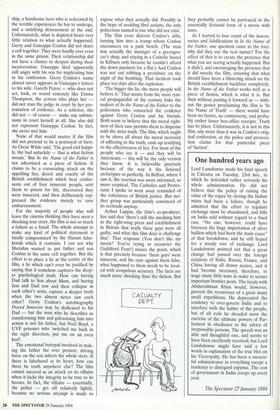One hundred years ago
Lord Lansdowne made his final speech in Calcutta on Tuesday, 23rd inst., in which he defended rather seriously his whole administration. He did not believe that the policy of raising the value of the rupee by closing the Indian mints had been a failure, though he admitted that the effort to regulate exchange must be abandoned, and bills on India sold without regard to a fixed rate. "No one, however, could have foreseen the huge importation of silver bullion which had been the main cause" of that breakdown, and he still hoped for a steady rate of exchange. Lord Landsdowne pointed out that a great change had passed over the foreign relations of India, Russia, France, and China having all drawn nearer, and it had become necessary, therefore, to wage many little wars in order to secure important frontier posts. The treaty with Abdurrahman Khan would, however, prevent the recurrence of a great many small expeditions. He deprecated the tendency to over-govern India and to interfere with the habits of the people, but of all evils he dreaded most the exercise of the ultimate powers of Par- liament in obedience to the advice of irreponsible persons. The speech was an able and thoughtful one, and seems to have been excellently received; but Lord Landsdowne might have said a few words in explanation of the true blot on his Viceroyalty. He has been a success- ! ul administrator in everything except a tendency to disregard expense. The cost of government in India creeps up every year.
The. Spectator 27 January 1894


































































 Previous page
Previous page